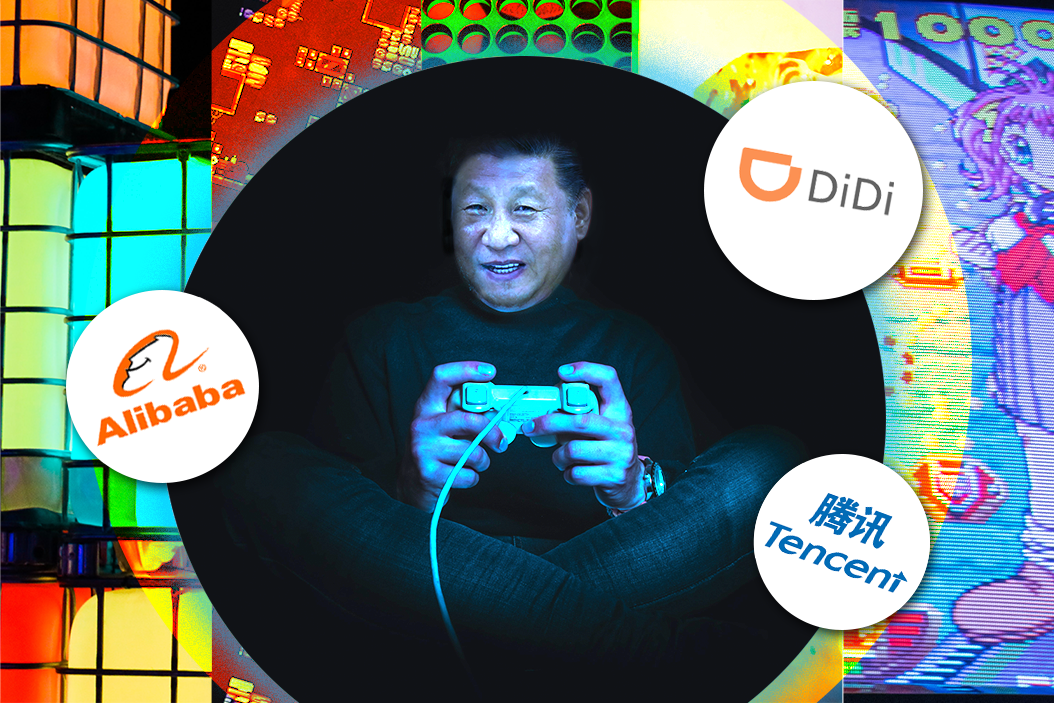March 15, 2022
Chinese economic jitters
The Hang Seng Index, Hong Kong’s benchmark equity market index, dropped to a six-year low on Tuesday. Why are investors so worried? Here are three possible reasons.
First, China’s zero-COVID policy, a top geopolitical risk Eurasia Group has highlighted for clients, is causing severe economic damage. Hong Kong now has the world’s highest death rate per capita, due in part to low vaccination rates among the elderly. Over the weekend, the southern city and tech hub of Shenzhen was put into lockdown with plans to test its entire population of 17.5 million after 60 cases of omicron were detected there. Trouble is, lockdowns are bad for business. Apple supplier Foxconn, for example, was forced to suspend operations at its plant in Shenzhen, which is also home to prominent Chinese tech firms such as Huawei Technologies and Tencent Holding. If zero-COVID drags on, it’ll further disrupt production and create bottlenecks for global supply chains.
Second, the tech crackdown continues. Last year, the ruling Communist Party took aim at China’s tech titans, targeting them with huge fines and tough regulation for allegedly violating anti-monopoly legislation. Now, Tencent, which owns the immensely popular WeChat app, faces a record fine for breaching anti-money-laundering laws. The more uncertain the regulatory environment becomes, the less likely tech investors are going to want to continue pouring money into China.
Third, the looming sanctions threat. Hours before top US and Chinese officials met in Rome on Monday to discuss the war in Ukraine, the American media leaked that Russia had asked China for arms to fight the Ukrainians (and later that China was open to it). The Chinese have denied it, but it certainly looks like the Biden administration is sending a message to Xi Jinping: don’t you dare help the Russians, or else. That could mean slapping economic sanctions on China if it tries to lend Moscow covert support for the war in Ukraine, which would badly hurt the Chinese economy and likely result in a global recession. We’re not there (yet), but the chatter has spooked investors at the worst possible time for Xi, who later this year is expected to “run” for a norm-defying third term as China's president.
Iran nuclear deal … back on?
Russian Foreign Minister Sergei Lavrov said on Tuesday that the US has promised that Russia can take on “all projects and areas of activity” with Iran within the terms of a revived Iran nuclear deal. Iran’s Foreign Minister Hossein Amir-Abdollahian then announced that Russia would not block a new agreement. The war in Ukraine ensures that no pledges can be taken at face value, but this latest news makes a revival of the Iran nuclear deal more likely.More For You
41.5%: The proportion of Havana’s garbage trucks that were operational this month, according to state-run media, as Cuba’s fuel crisis prompts a garbage crisis.
Most Popular
- YouTube
Sovereignty has become one of the most powerful, and least defined, words in tech policy. At the 2026 Munich Security Conference, SAP global head of government affairs, Wolfgang Dierker, explains why governments and enterprise customers are demanding more control over their data, cloud infrastructure, and AI systems amid rising geopolitical uncertainty.
- YouTube
On the sidelines of the 2026 Munich Security Conference, Annemarie Hou, Executive Director of the United Nations Office of Partnerships, joined Tony Maciulis to discuss the power of women leaders in global decision-making.
Security in a fragmented world: Cyber deterrence, NATO reform & the future of trusted tech
Feb 14, 2026
- YouTube
In a new Global Stage livestream from the 2026 Munich Security Conference, New York Times White House and national security correspondent David Sanger moderates a conversation with Ian Bremmer (President & Founder, Eurasia Group and GZERO Media), Brad Smith (Vice Chair & President, Microsoft), Benedetta Berti (Secretary General, NATO Parliamentary Assembly), and Wolfgang Dierker (Global Head of Government Affairs, SAP) on how technology and defense are colliding in real time.
© 2025 GZERO Media. All Rights Reserved | A Eurasia Group media company.
